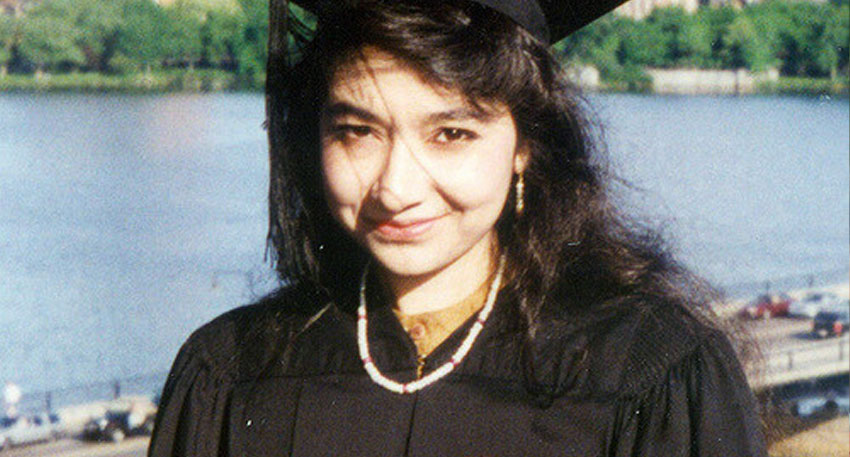
A four-judge larger bench of the Islamabad High Court has been constituted to deliberate on key legal questions arising from the transfer of Dr Aafia Siddiqui’s case. The matter was originally being heard by Justice Sardar Ejaz Ishaq Khan, who had issued contempt notices to Prime Minister Shehbaz Sharif and the entire federal cabinet for failing to respond to the court’s directives regarding Dr Siddiqui’s repatriation.
Dr Aafia Siddiqui, a Pakistani neuroscientist, has been incarcerated in the United States since 2010 after her conviction by a federal court in New York on charges of attempted murder of U.S. personnel in Afghanistan. Her case has long been the subject of legal and diplomatic efforts, with renewed urgency in recent months driven by a petition filed by her sister, Dr Fowzia Siddiqui, seeking her release, medical evaluation, and repatriation to Pakistan.
The controversy deepened in July 2025, when the Islamabad High Court expressed dissatisfaction over the federal government’s failure to submit a report in the case. During a hearing held on July 12, Justice Sardar Ejaz warned that continued government inaction would result in serious consequences. He noted in court that if a report was not submitted, the court would have no choice but to summon the entire cabinet. The government instead filed an appeal in the Supreme Court against the judge’s earlier decision allowing amendments to Dr Fowzia s petition. However, the Supreme Court did not take up the appeal, and the government failed to explain the delay in its response. Consequently, Justice Ejaz deemed the government to be in contempt and directed the court office to issue notices to all federal ministers, including the prime minister, demanding written replies within two weeks.
In his order, Justice Ejaz criticized what he described as the misuse of administrative control over the court’s functioning, particularly through manipulation of the weekly judicial roster. He pointed out that although he was officially on leave, his request had not been signed by the chief justice, effectively preventing the issuance of a cause list and interfering with his ability to hear urgent cases. He alleged that such administrative maneuvers were designed to obstruct proceedings, especially in politically sensitive matters like that of Dr Aafia Siddiqui.
These developments culminated in the recent reallocation of the case, prompted by a report from the registrar’s office, which raised serious questions about the legitimacy of the July 21 hearing held by Justice Ejaz. The report emphasized that Justice Ejaz was not assigned to a bench on that date and was officially on leave according to the summer roster. It further highlighted that the determination of benches is an administrative prerogative of the chief justice and that no judge can assume jurisdiction over a case unless formally assigned to it. The report cited precedents from both the Supreme Court of Pakistan and the Supreme Court of India, reinforcing this principle.
In light of these concerns, the Islamabad High Court reassigned pending matters and constituted a larger bench to address the complex legal and procedural questions. The four-member bench—comprising Justice Arbab Mohammad Tahir, Justice Khadim Hussain Soomro, Justice Mohammad Azam Khan, and Justice Raja Inaam Ameen Minhas—will now hear the matter on September 10. The bench is tasked with considering whether a judge can self-assign a case, whether the approved judicial roster can be overridden, and whether the chief justice must seek consent from benches before consolidating similar petitions.
The gravity of the situation was underscored by Justice Ejaz’s remarks during the July proceedings, where he accused the executive of attempting to control judicial proceedings through administrative tools like the roster system. Despite being on leave, he proceeded with the case, citing its importance and the urgency of addressing Dr Aafia Siddiqui’s situation. He reaffirmed his intention to exercise his judicial authority to uphold the court’s dignity, stating that justice must not be derailed by procedural or political interference.
Also Read: ECP Postpones By-Elections Due to Nationwide Flood Emergency
During one of the hearings, lawyer Imran Shafiq, representing Dr Fowzia Siddiqui, emphasized that the government had failed to take meaningful legal steps, such as forming a new bench or seeking a stay from the Supreme Court. He argued that the delay was deliberate, and Justice Ejaz echoed these concerns, expressing frustration with how administrative power was being used to undermine judicial independence. He concluded that the next hearing would take place on the first working day following the end of his leave.
Now, as the larger bench prepares to hear the case, the matter has evolved into more than a legal battle over one individual’s repatriation. It has exposed deep institutional tensions within the judiciary and raised broader questions about the balance of administrative authority and judicial independence in Pakistan’s legal system.




